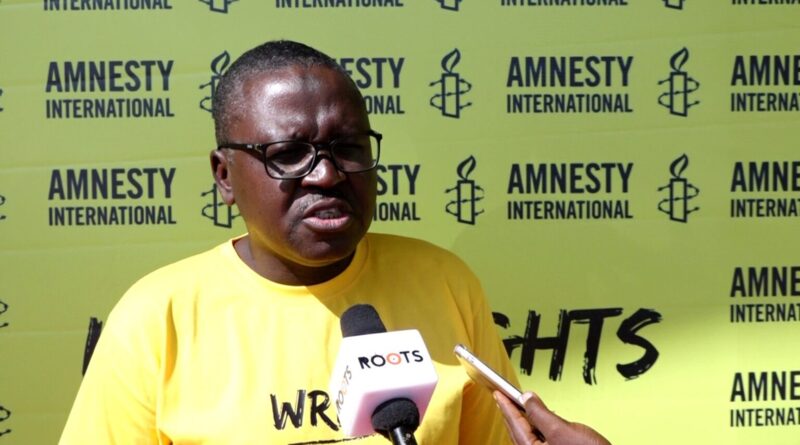Amnesty International Challenges Military Denial, Alleges Extrajudicial Killings in Southeast Nigeria
Amnesty International has accused the Nigerian military of carrying out extrajudicial killings in the country’s Southeast region, insisting it has substantial evidence—including names and addresses of victims—to support its claims.
The Country Director of Amnesty International Nigeria, Isa Sanusi, stated that the organization is prepared to present its findings publicly.
“We have solid evidence and are willing to present it. We remain in contact with victims’ families and believe it is time for deep reflection. We must examine these cases, identify those responsible, and ensure justice is served,” Sanusi said.
Amnesty’s latest report, titled “A Decade of Impunity: Attacks and Unlawful Killings in Southeast Nigeria,” accuses the Nigerian police, military, regional security outfit Ebube Agu, and various non-state actors of widespread human rights violations across the region.
The report documents more than 1,844 killings between January 2021 and June 2023, along with incidents of torture, enforced disappearances, arbitrary detentions, and other abuses.
In response, the Director of Defence Media Operations, Major General Markus Kangye, rejected the allegations, asserting that the Nigerian military does not engage in extrajudicial killings in the Southeast or elsewhere. He maintained that security operations in the region have significantly reduced criminal activity.
Sanusi, however, dismissed the military’s response and rejected claims of bias against the armed forces.
“What the defence spokesperson said is entirely incorrect. Our report also includes cases where soldiers were attacked or killed, and where barracks were targeted. This isn’t about targeting the military—it’s about truthfully documenting human rights abuses wherever they occur,” he explained.
According to Amnesty, many of the reported killings occurred during military operations in communities suspected of harboring members of the Indigenous People of Biafra (IPOB) or its armed wing, the Eastern Security Network (ESN). In some instances, individuals were reportedly taken from their homes and never seen again.
Sanusi noted that the investigation involved interviews with 100 individuals—95 of them conducted face-to-face in the Southeast. He added that Amnesty contacted the military before publishing the report, informing them of the allegations and requesting information, but received no response.
“We reached out to the military before releasing our findings, asking for input that could help us understand the human rights implications of their operations. Unfortunately, we heard nothing back,” Sanusi said.
He stressed that Amnesty’s concern goes beyond the military and includes other state and non-state actors.
“We are not targeting the military. Our concern is with unlawful killings—whether committed by soldiers, police, or Ebube Agu. All lives must be protected under the law,” he said




